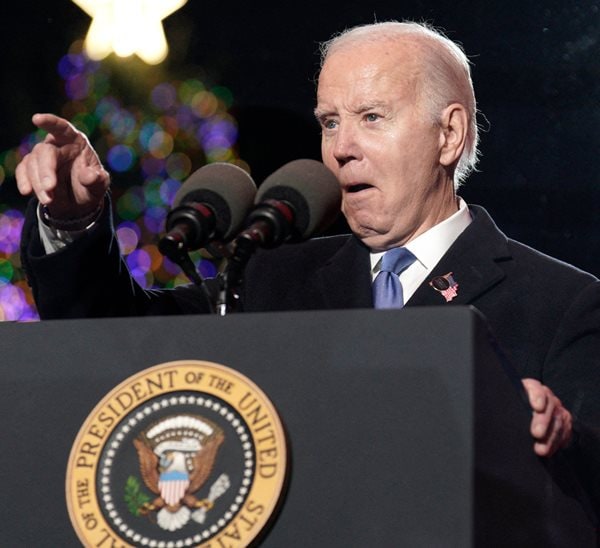Resistance Grows: Car Dealers Challenge EV Mandate

Table of Contents
Financial Hurdles and Infrastructure Gaps
The transition to an EV-centric market presents substantial financial hurdles for car dealerships. The high upfront investment required for EV infrastructure is a major concern. Dealerships must invest in costly charging stations, both Level 2 chargers for home use and DC fast chargers for quicker public access. This represents a significant capital expenditure, especially for smaller dealerships with limited resources. Furthermore, profit margins on EVs are currently lower than those on gasoline-powered vehicles, impacting dealerships' overall profitability. This is due to several factors, including higher manufacturing costs and increased competition. The lack of sufficient government support or inadequate incentives specifically targeted at assisting dealerships in this transition exacerbates these financial challenges.
- High cost of installing Level 2 and DC fast chargers. The price of these chargers, coupled with the electrical grid upgrades often needed, can run into tens of thousands of dollars.
- Need for specialized EV mechanic training. Servicing EVs requires specialized knowledge and tools, necessitating costly training programs for dealership mechanics.
- Inventory management challenges due to fluctuating EV demand. Predicting and managing EV inventory is complex due to the evolving market and consumer preferences.
- Uncertainty about future EV technology and consumer preferences. The rapid pace of technological advancement in the EV sector creates uncertainty for dealerships regarding long-term investments.
Consumer Demand and Market Readiness
While government mandates push for rapid EV adoption, current consumer demand doesn't always align with these ambitious targets. Many consumers remain hesitant due to concerns about EV range anxiety, charging times, and the overall availability of charging infrastructure, particularly in rural areas. The high initial purchase price of EVs compared to gasoline-powered cars also presents a significant barrier for many potential buyers. Fluctuating electricity prices further complicate the equation, making the overall cost of ownership less predictable. Limited consumer awareness of the total cost of ownership and the long-term benefits of EVs also hinders wider adoption.
- Limited consumer awareness of EV benefits. Many consumers are unaware of the long-term cost savings and environmental advantages associated with EVs.
- Range anxiety remains a major barrier to EV adoption. The fear of running out of charge before reaching a charging station is a significant concern for many potential EV buyers.
- Charging infrastructure limitations in rural areas. The lack of sufficient charging infrastructure outside of major urban centers limits the practicality of EVs for many drivers.
- High initial purchase price of EVs compared to gasoline cars. The higher upfront cost of EVs remains a major obstacle to wider adoption, particularly for budget-conscious consumers.
Dealership Preparedness and Training Challenges
The successful transition to an EV-centric market requires significant changes in dealership operations, including sales strategies and customer service. However, many dealerships lack the adequate training and support needed to effectively sell and service EVs. This includes specialized sales training on EV technology and features, as well as comprehensive training for service and repair technicians. Integrating EVs into existing dealership operations poses logistical challenges, requiring adaptations to showroom layouts and service bays to accommodate new charging infrastructure and specialized tools. The integration of new EV inventory management systems also adds another layer of complexity.
- Need for specialized sales training on EV technology and features. Sales staff needs in-depth knowledge to effectively address customer concerns and highlight the benefits of EVs.
- Lack of resources for EV service and repair training. Dealerships need access to comprehensive training programs and resources to equip their technicians with the skills needed to service EVs.
- Challenges in adapting existing showroom and service bays. Physical modifications are often needed to accommodate charging stations and specialized EV repair equipment.
- Integration of new EV inventory management systems. Dealerships require new systems to track EV inventory and manage the complexities of EV maintenance and repair.
Legal and Political Ramifications of the EV Mandate
The push for widespread EV adoption is not without its legal and political ramifications. Dealerships are increasingly challenging EV mandates through legal action, citing the financial and logistical challenges outlined above. This resistance creates significant political pressure on governments to reconsider or amend their mandates. Lobbying groups representing car dealerships play a crucial role in shaping the political debate surrounding EV adoption, advocating for policies that address the concerns of the industry. The outcome of these legal and political battles will significantly impact future government policies regarding EV adoption.
- Examples of legal challenges and their outcomes. Tracking the progress and outcomes of legal challenges against EV mandates offers valuable insight into the future of the industry.
- Political pressure on governments to reconsider mandates. The growing resistance from dealerships is influencing political discourse and potentially leading to adjustments in EV adoption timelines.
- Impact on future government policies regarding EV adoption. The ongoing legal and political battles will shape the future direction and implementation of EV policies.
- Potential compromises between government and dealers. Negotiations between government agencies and dealerships may lead to compromises that address industry concerns while still promoting EV adoption.
Conclusion: Navigating the Uncertain Future of EV Mandates
The transition to electric vehicles presents significant challenges for car dealerships. Financial hurdles, inadequate infrastructure, insufficient consumer demand, and a lack of training and support contribute to the growing resistance to EV mandates. The financial burden of upgrading infrastructure, lower profit margins on EVs, and the uncertainties surrounding consumer adoption all pose major obstacles. To ensure a smooth transition to an EV-centric future, collaboration between governments and dealerships is crucial. Increased government incentives, improved charging infrastructure, and comprehensive training programs are vital steps to address the concerns of the industry and pave the way for successful EV adoption. Stay informed about the ongoing debate surrounding EV mandates and their impact on the automotive industry; engage in discussions and advocate for realistic solutions that address the concerns of both car dealers and environmental goals.

Featured Posts
-
 Gensol Engineering Faces Pfc Complaint Over Alleged Falsified Documents
Apr 27, 2025
Gensol Engineering Faces Pfc Complaint Over Alleged Falsified Documents
Apr 27, 2025 -
 Swarovski Campaign Showcases Ariana Grandes Unique Dip Dye Ponytail
Apr 27, 2025
Swarovski Campaign Showcases Ariana Grandes Unique Dip Dye Ponytail
Apr 27, 2025 -
 Alberto Ardila Olivares Tu Garantia De Exito En El Gol
Apr 27, 2025
Alberto Ardila Olivares Tu Garantia De Exito En El Gol
Apr 27, 2025 -
 Controversial Choice Anti Vaxxer Heads Autism Research
Apr 27, 2025
Controversial Choice Anti Vaxxer Heads Autism Research
Apr 27, 2025 -
 Hair And Tattoo Transformations Learning From Ariana Grandes Style
Apr 27, 2025
Hair And Tattoo Transformations Learning From Ariana Grandes Style
Apr 27, 2025
